What Now? Having Difficult Conversations in Our Community
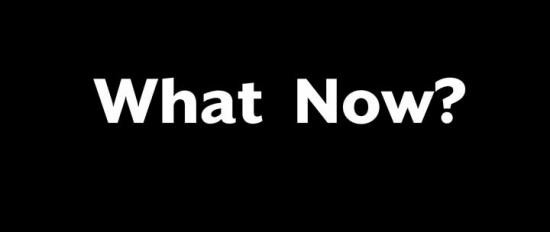
Featuring students Catherine Cole, Sara Elzeini, and Maura Lester McSweeney
Date: March 16, 2017
Abstract
Now, more than ever, dialogue between people of different political persuasions is crucial. But how can we talk to each other in ways that recognize our fears for the present and hopes for the future?
Join us for a town hall forum addressing the tumultuous times ahead and how we can talk to each other openly and honestly.
Speaker Bios

Catherine Cole is a senior in the Morrissey College of Arts & Sciences. She is majoring in political science and Islamic civilization and societies, with a minor in music. On campus, she runs Al Noor, the Middle Eastern Studies journal, and Project Swim, a club that provides swimming lessons for children with disabilities. Catherine's other experiences include internships with Speaker Paul Ryan's office, the House Homeland Security Committee, and Governor Charlie Baker's campaign.

Sara Elzeini is a junior in the Morrissey College of Arts & Sciences, majoring in communications and concentrating in management and leadership. She's active in the AHANA community, being a part of many culture clubs on campus, as well as a part of many activism initiatives on campus. She hopes to combine her studies of communication with her love of activism to better the BC community and the community at large.

Maura Lester McSweeney is a senior in the Morrissey College of Arts and Sciences. She is a perspectives major and international studies minor. Maura is a part of CRS Student Ambassadors and has been organizing political advocacy workshops with them for different student groups throughout the semester.
Event Photos
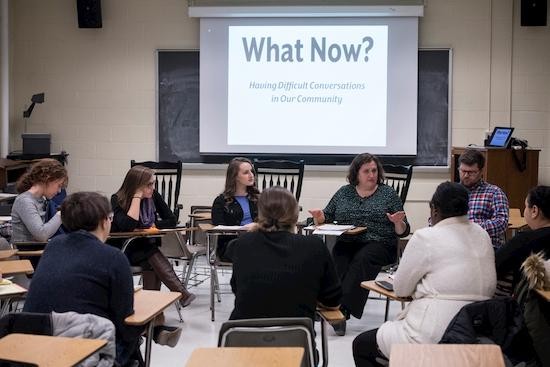
The Boisi Center held a town hall forum and small group discussion on March 16, 2017, entitled What Now? Having Difficult Conversations in Our Community. After opening remarks by Catherine Cole (below), Maura Lester McSweeney (beneath Cole), and Sara Elzeini (beneath McSweeney), the student attendees engaged in a lively yet honest debate about the things most pressing to the BC community and how to talk with each other, rather than at each other, about the things that matter most.
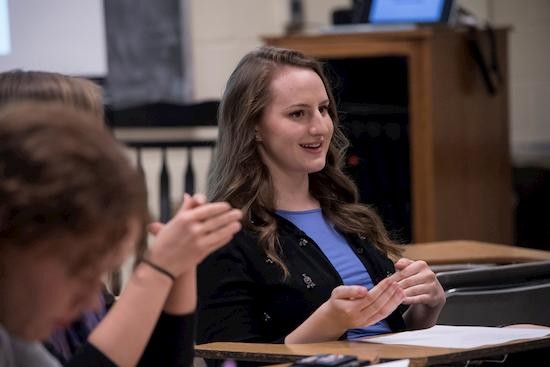
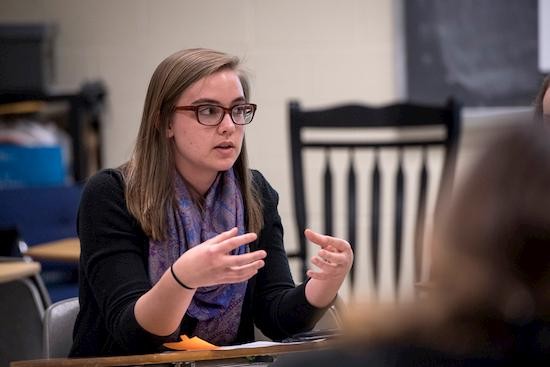
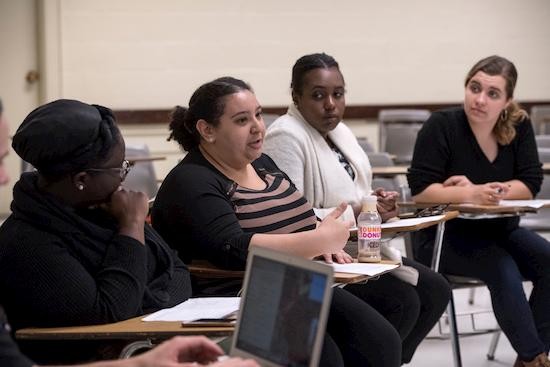
Photos by MTS Photography
Event Recap
On March 16, the Boisi Center hosted a student town hall entitled What Now? Having Difficult Conversations in Our Community to encourage thoughtful discussion on the importance and difficulties of discourse in the Trump era. Student panelists Catherine Cole, MCAS ’17, Sara Elzeini, MCAS ’18, and Maura Lester McSweeney, MCAS ’17, provided thoughtful remarks that spurred a lengthy small-group discussion. The group told impactful anecdotes, asked honest questions, and shared human insecurities and vulnerabilities with the goal of creating more safe, open, and constructive spaces for conversation at BC and in the greater community.
Catherine Cole was the first panelist to speak. She noted how easy it is to talk to others, even our friends, with the wrong goals and without listening. To get to the root of the matter and find common ground, we should genuinely seek to understand why the other person believes what they believe. Cole concluded that we should not start conversations with the goal of changing the other person’s mind. Rather, conversations and relationships require a give-and-take, an open mind, and the understanding that the beliefs of others are often grounded in their upbringing, circumstances, and values.
Sara Elzeini followed by admitting the shortcomings of BC’s official neutral stance on many pressing political and social issues. Elzeini advocated for a BC that makes its students and community feel protected by engaging these conversations. For Elzeini, activism is not and should not be confined to protests, boycotts, and demonstrations. Dialogue can be a form of activism as well. Elzeini echoed Cole by reiterating the importance of give-and-take in conversations. She remarked that listening to and understanding new perspectives promotes growth, and this should be encouraged in our community.
Maura Lester McSweeney pointed out that we tend to engage only with people who share our views. She believes that this dividedness comes from a lack of trust and feelings of insecurity. Invoking Aristotle, McSweeney said that laws and politics are about how we relate to one another and that these things should not be set aside in our friendships. When we realize that our relationships and our politics are, more often than not, interconnected, we can begin to have difficult and important conversations. In order for this to happen, however, we must acknowledge our different life circumstances, realize our own reasons for holding certain beliefs, and put ourselves in the shoes of the person on the other side.
The speakers provoked a variety of questions, worries, and ideas for change among the small group participants, such as the importance of humility and the need to let go of our presuppositions when talking to others. Students also discussed the specific role of a BC student, and how students can use their platform to uplift the voices of people with identities distinct from their own. A number of frustrations were also discussed, such as the difficulty of being vulnerable and sharing experiences when others are not receptive to the conversation. The conversation closed with brainstorming new ways to get people talking on campus, and the suggestion that “we can start with our common humanity when we’re looking for common ground.”
Read More
Online Resources
The Civil Conversations Project, http://www.civilconversationsproject.org
Krista Tippett Public Productions, "Civil Conversations at Home and in Community" PDF
The Institute for Civility in Government, http://www.instituteforcivility.org/
Facing History and Ourselves, "We Need to Talk" PDF
Facing History and Ourselves, "Post-Election Support for Difficult Conversations" facinghistory.org
In the News
FacingHistory.org's piece, "We Need to Talk," was featured in the New York Times. For more information on having difficult conversations, click here!

